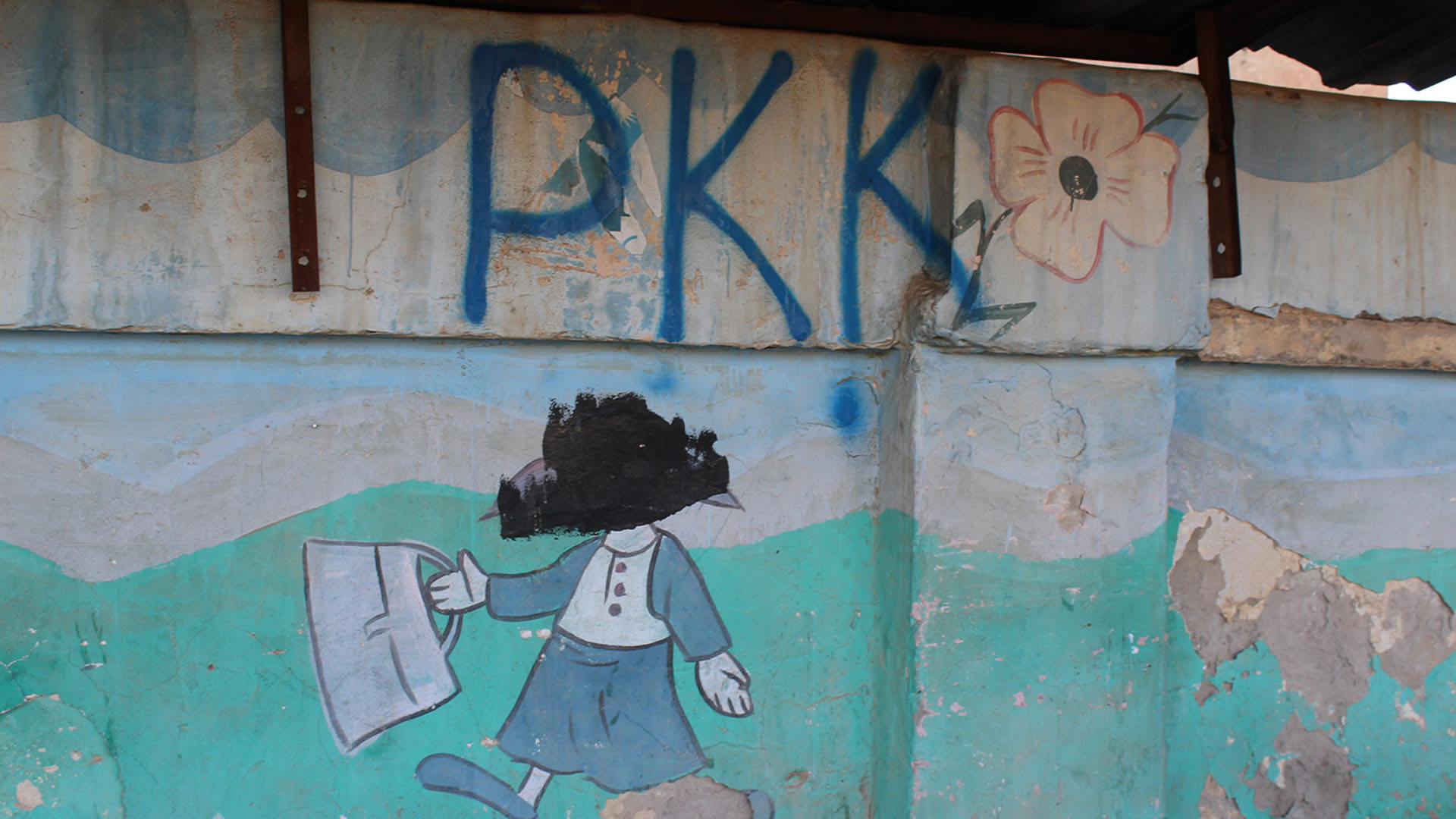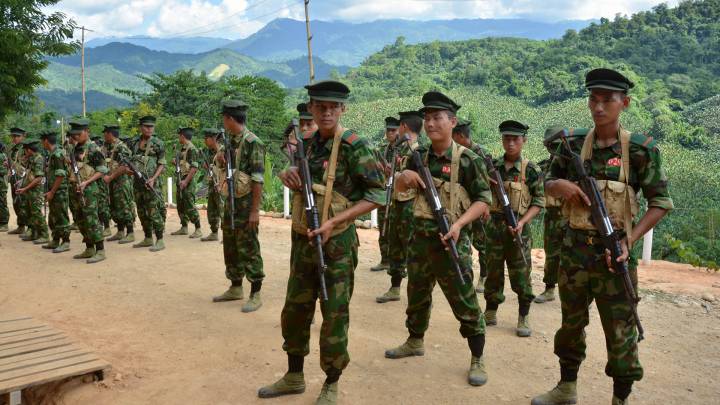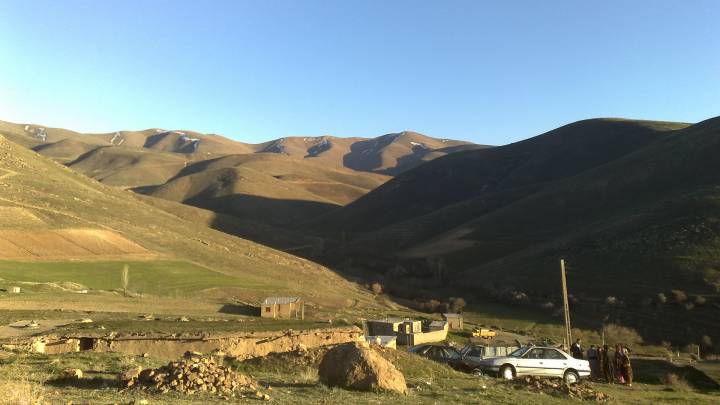As Iraqi militia groups vie for military and political ascendency throughout the country, the vulnerable northern region of Sinjar presents an opportunity to gain the upper hand.
Over the past few months, the turbulent district of Sinjar in northern Iraq has become the focus of negotiations between the Iraqi government and the Kurdistan Regional Government (KRG). The most recent round of discussions held in early October this year resulted in the signing of the Sinjar Agreement, a set of steps agreed upon by the two governments to resolve the ongoing political and security problems facing the region. Despite receiving unanimous support from Iraqi, Kurdish, US and UN officials, the response of Sinjar’s residents has been far less receptive. Their scepticism is well-founded given the extent to which their community has historically suffered for its cultural and religious practices. But despite the support that has been shown to the Sinjari community more recently, questions have been raised about the true motivations of these groups ostensibly offering assistance to this vulnerable region.
As the ancestral home of Iraq’s minority Yazidi community, Sinjar has endured trial after tribulation, the most notorious of which came in 2014 when ISIS committed systemic acts of genocide against Yazidis. Branded as ‘devil-worshippers’, Yazidi women were kidnapped, trafficked, and sexually brutalised, while large numbers of Yazidi men were executed. When ISIS fighters were chased out of the region in 2017, Sinjar did not enjoy a renewed sense of stability. The region still lacked a unified administrative body able to provide basic public services, as well as a more general sense of communal safety and well-being.
Although the agreement specifies which authorities will be charged with which distinct responsibilities, it fails to detail how exactly these commitments will be met.
For the last three years, the region has instead been caught in a crossfire between several forces vying to control it. After winning the battle against ISIS in the region, the Kurdistan Workers’ Party (PKK) assumed majority control of Sinjar. Meanwhile Iraqi forces—among them the Popular Mobilisation Forces (PMF) otherwise known as al-Hashd al-Sha'bi — fought to drive out the Kurdish Peshmerga, the military forces of Iraqi Kurdistan, in the wake of the referendum on Kurdish independence later that same year. This unconventional mode of governance persists to this day, as the district remains officially under the jurisdiction of two local governments; the one appointed by Baghdad, and the other locally elected before October 2017.
On the matter of local governance, the Sinjar Agreement states that an independent and technocratic district head will be appointed to govern the region, while the other relevant positions will be selected by a joint committee. The agreement also outlines the transfer of security responsibilities to local police forces, 1500 of whom will be recruits from returning displaced persons. This is not only intended as a transfer of power to local communities, but also as an emphatic push to force all external armed forces to withdraw.
Yazidi organisations such as Yazda and the Free Yazidi Foundation, which focus on advocating for the rights of Yazidi communities both around the world and in Iraq, are reserving their praise of the conclusion for now. Many apprehensively consider the Sinjar Agreement a renewed attempt by centralised Iraqi powers to assume direct control of the region. Although the agreement specifies which authorities will be charged with which distinct responsibilities, it fails to detail how exactly these commitments will be met.
The decision to exclude Yazidi representatives entirely from the agreement’s primary negotiations was interpreted by the community as a sign that the emphasis on local self-governance was merely a superficial gesture.
A principal concern prospect of armed forces withdrawing from the region - given the PMF and PKK’s outright rejection of the agreement, it is unclear how unwilling participants will be persuaded to comply. The Yazidi community’s lukewarm reception of the agreement is therefore unsurprising, suspecting that it offers another empty call for collaboration in the region. If implemented incorrectly, the fear is that the region will revert to its tendency towards rule by proxy.
The Yazidi Movement for Reform and Progress, a Yazidi political party in Iraq, released a statement urging the Iraqi and Kurdish Prime Ministers, alongside the UN and the international coalition, to afford the Yazidis their own political and administrative rights in the region. What has become clear following the agreement and subsequent responses from the Yazidi community is that it is not enough simply to state that Sinjari interests will be prioritised; ultimately, any power-sharing agreement in the region must involve locals at every stage.
Since no party representing the Yazidis was present at any point during the initial negotiations, it is understandable why the Yazidi reception of the agreement was muted from the outset. The Autonomous Administration Council of Sinjar, an administrative body which has governed the area since 2014, was not even consulted during the proceedings. This is likely due to the Council’s connection to the Shingal Resistance Units (YPS), an armed group affiliated with the PKK, which has been designated a terrorist organisation by the USA and Turkey. The decision to exclude Yazidi representatives entirely from the agreement’s primary negotiations was interpreted by the community as a sign that the emphasis on local self-governance was merely a superficial gesture.
Since the involvement of the Yazidi community in these critical discussion phases has played a decisive role in the reception of the agreement, in early November a Yazidi delegation from Sinjar was invited to meet Prime Minister Mustafa Al-Kadhimi in Baghdad. These representatives were given the opportunity to share a list of demands to be addressed in the implementation of the agreement, stressing a commitment to ensuring the region’s stability and security. Although this marks a promising start to a productive and cooperative effort between Sinjar, Baghdad, and Erbil, the relationship between the three has not always been a steady one.
While local residents are grateful for their support, international players, especially the US, would question the PKK’s continued presence in the region.
The Yazidi community’s reluctance to fully entrust the Iraqi and Kurdish governments with the security of their region is a consequence of the trauma they experienced at the hands of ISIS. When ISIS forces advanced in 2014, it was the Iraqi army and the Peshmerga who fled while the PKK remained and evacuated scores of Yazidis. While local residents are grateful for their support, international players, especially the US, would question the PKK’s continued presence in the region and would not want to confer any legitimacy the organisation as a result of its role in Sinjar.
Hisham Daoud, an advisor to the prime minister, points to history when asked why Yazidis are so reluctant to see PKK forces leave Sinjar. According to Daoud, the Yazidis are torn between past horrors and gratitude towards those who helped them escape ISIS’ reign of terror. While arguably these groups, such as the PKK and the PMU, have exploited this opportunity to win them a seat as the negotiating table, and to establish themselves as regional kingmakers.
The Iraqi government subscribes to this narrative. It considers these groups to be opportunists, who care little for the security of local communities but rather seek to exploit their vulnerability for political and military gain. This position is a headache for the Iraqi armed forces who, currently beset by internal conflict, find themselves caught in the middle of a power struggle in the region. A balance clearly must be stuck between respecting the demands of Sinjar residents and wider national security concerns.
The Sinjar Agreement’s outlined goals may be promising, but crucial questions regarding implementation and compliance remain unanswered. Whether the agreement will prove successful in guaranteeing the stability of Sinjar is undoubtedly dependent of the ongoing consultation and involvement of the local community.
Dina Khadum is a researcher specialising in the current affairs of Iraq.




